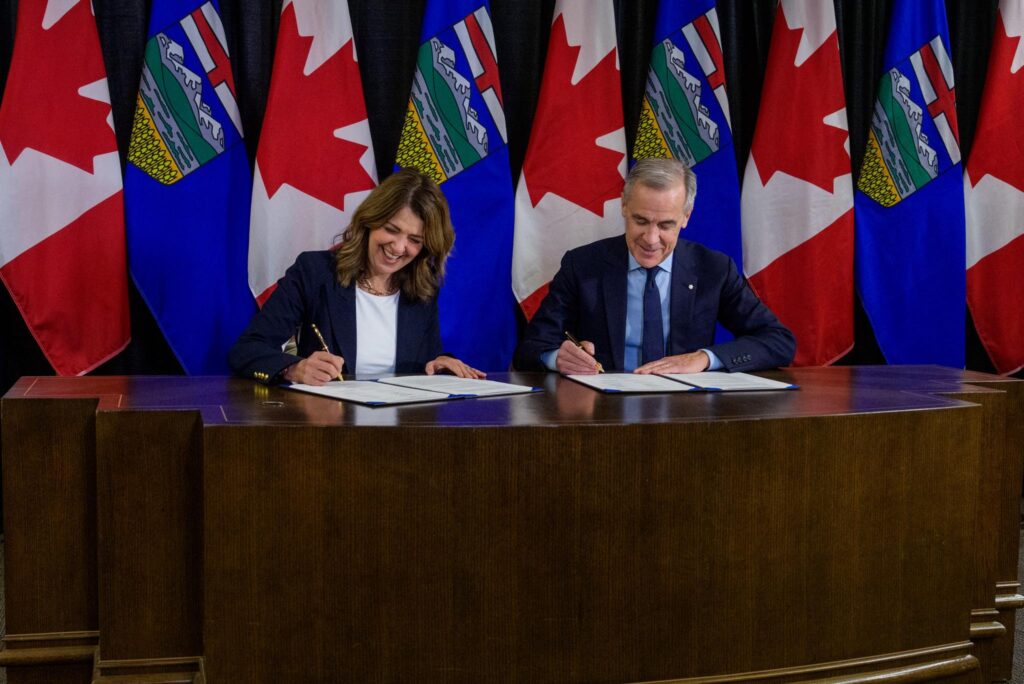The UN‘s annual climate meetings wrap up in Doha today, and though the feckless agreements are a “delight to no one,” there is one silver lining. Geo-engineering, that grand, scary global experiment of last resort, won “scant enthusiasm” from the vast majority of participants.
“Let’s face it, geo-engineering has a lot of unknowns,” Rajendra Pachauri, chairman of the U.N.’s panel of climate scientists, told Reuters.
Christiana Figueres, head of the U.N. Climate Change Secretariat, agreed, emphasizing the need to focus on actual greenhouse gas emissions reductions and mitigation strategies first. “Let’s first use what we know,” said Figueres. “There are so many proven technologies we know exist that are tried and true that have not been used to their maximum potential,” she told Reuters. “To begin with, the simplest is energy efficiency.”
Advocates of geo-engineering strategies – which range from tinkering with the planet, the oceans or the atmosphere itself to force cooling in an effort to combat climate change – claimed a breakthrough in the international negations arena in the Cancun climate talks back in 2010. “The taboo is broken,” Paul Crutzen, a Nobel Prize-winning atmospheric scientist who has published on geo-engineering, then told The Associated Press.
That enthusiasm from 2010 seems to be on the wane as opponents of these strategies – including those at the highest levels of leadership in the U.N.’s climate bodies – highlight just how unproven all of these concepts are. Many advocates of real climate change mitigation are also wary of how rich nations could implement these massive, world-changing engineering efforts, the impacts of which are entirely beyond prediction.
“It’s absolutely inappropriate for a handful of governments in industrialised countries to make a decision to try geo-engineering without the approval of all the world’s support,” Pat Mooney, from Canada-headquartered advocacy organisation ETC Group, told Reuters at the U.N. Convention on Biological Diversity (CBD) meetings in Japan in October 2010.
This isn’t to say that geo-engineering is totally off the table in the international negotiations.
The Intergovernmental Panel on Climate Change (IPCC), the U.N.’s panel of climate scientists, will be including a detailed section on geo-engineering for the first time in its major “assessment report,” the fifth of which is due to be released in late 2013.
It remains to be seen whether that report will close the door on geo-engineering forever, or keep some hope alive for this scary, ill-defined concept that should, at most, be considered an avenue of absolute last resort.
Some proposed geo-engineering projects include:
- Ocean fertilization: Sprinkling iron or other nutrients across large swaths of the oceans to artificially spur growth of phytoplankton, which soak up carbon dioxide. Could also trigger harmful algal blooms, soak up nutrients and kill fish and other animals.
- Fake clouds: Spraying seawater into the atmosphere to increase the reflectivity and condensation of clouds so they bounce more sunlight back into space.
- Sunshades: Floating trillions of tiny solar reflectors in space to cut the amount of sunlight reaching the Earth.
- Artificial volcanoes: Releasing tiny sulphate particles into the stratosphere to reflect sunlight, simulating the effect of a major volcanic eruption.
- Carbon capture and storage: Considered by some to be geo-engineering, which itself is curious since the carbon dioxide sequestered is being released by human activities.
To that last point, writing for OnEarth earlier this week, science fiction author Kim Stanley Robinson, famous for his novels about the “terraforming” (in essence, a type of geo-engineering) of Mars, notes that by releasing such drastic amounts of greenhouse gases into the atmosphere, we are already geo-engineering the planet. In his thoughtful and eloquent essay, Robinson argues that rather than “try any of the more dangerous experiments we now think of when we come across that word,” we should think of geo-engineering the planet by changing our behaviors and economies to reverse the ways in which we’ve already manipulated the planet.
Subscribe to our newsletter
Stay up to date with DeSmog news and alerts






